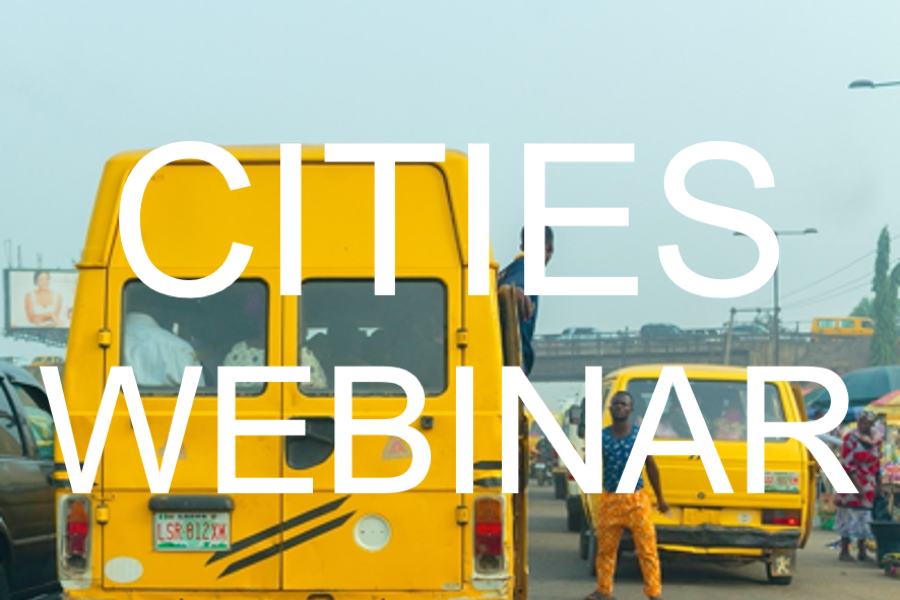Publication: Urban School Activity Report
18 July 2022
Daniel Agbiboa, Presentation of the book “They Eat Our Sweat. Transport Labor, Corruption, and Everyday Survival in Urban Nigeria”, 15.09.2022, 5:30PM-7:15PM
12 September 2022Stijn Oosterlynck, “Shifting city-state relations: exploring regulative opportunities for urban civil society in addressing poverty and diversity”, CEE, 13.07.2022, 12h30-14h30
Wednesday 13 July 2022
12.30 – 2.30 pm
Sciences Po, Room K.008
1 place Saint-Thomas d’Aquin, 75007, Paris
The relationship between cities and national states is a recurrent concern in urban studies (Therborn, 2017) (Tilly, 1992). The power of national states is based on their capacity to regulate socio-political tensions and conflicts through centralization and territorialization. During the past centuries, national states’ collective capacity to act by far surpassed that of any rivalling political entity, including that of cities. However, since the 1980s, this situation is changing, with national states finding it increasingly difficult to extract resources from and wield power over organisations, practices and processes taking place at supra- and supernational scales (Brenner, 2004). This declining ‘scale dominance’ of national states (Collinge, 1999) opens up space for cities to build their collective capacity to act and (re-)assert more autonomously external strategies as well as internal strategies to structure and regulate urban societies (Le Galès, 2002). In line with pleas to ‘see like a city’ (Magnusson, 2011), I propose to see urban politics not as primarily operating through the statist ontology that informs national states, but in terms of an ontology of multiple authorities, shifting and blurred hierarchies and always deferred sovereignty. In this urban-political ontology of diffused authority, urban civil society plays a key role. I want to argue that the ongoing ‘relativization of scale’ (Jessop, 2004) offers to cities ‘regulative opportunities’ (Salvaire, 2021). This is in particular the case with regard to two of the most intractable societal challenges of our times: the fight against poverty and living in diversity. The capacity of urban civil society to generate innovations is based on the way it mobilizes the qualities of (relational) urban places (Massey, 2005), in particular dense proximities and relationalities (Oosterlynck, Loopmans, Schuermans, Van den Abeele, & Zemni, 2016; Oosterlynck, Novy, & Kazepov, 2019).
I argue that the operations of civil society have the potential to improve the city’s capacity to regulate and stabilize urban societies in the face of the emergence of new social risks that are not adequately addressed by national welfare states and the challenges of living in diversity in increasingly superdiverse societies that are not well-addressed by the neo-assimilationalist policies that are pre-dominantly pursued by national states. All this serves to strengthen the position of cities vis-à-vis national states, but at the same time, in today’s multi-scalar governance configurations, this innovative potential of urban civil society can be ‘(re-)caged’ in macro-level social policies (e.g. national active labour market policies instrumentalizing local social innovations) or serve to transform national identities (e.g. producing more inclusive national identities, cfr.(Putnam, 2007).
Speaker
Stijn Oosterlynck, University of Antwerp, Visiting professor at Sciences Po, CEE
Professor Stijn Oosterlynck is a full professor in urban sociology at the University of Antwerp. He is the chair of the Antwerp Urban Studies Institute. His main research interests are place-based forms of solidarity in diversity, the politics of community and urban development, civil society innovation, urban social and diversity policies and local social innovation and welfare state restructuring. He is currently involved in large scale research projects on religious forms of solidarity in post-secular cities and leads a Marie Skłodowska-Curie International Training Network on solidarity in diversity (https://www.solidi.eu/).
Recent publications include an edited volume The city as global political actor (with Beeckmans, Bassens and Derudder), a book titled Local social innovation to combat poverty and exclusion: a critical appraisal (with Novy and Kazepov) and the edited volume Divercities. Understanding super-diversity in mixed and deprived neighbourhoods (with Verschraegen and Van Kempen).
Collective discussion
*Key Theme: The state as producer of public policies

